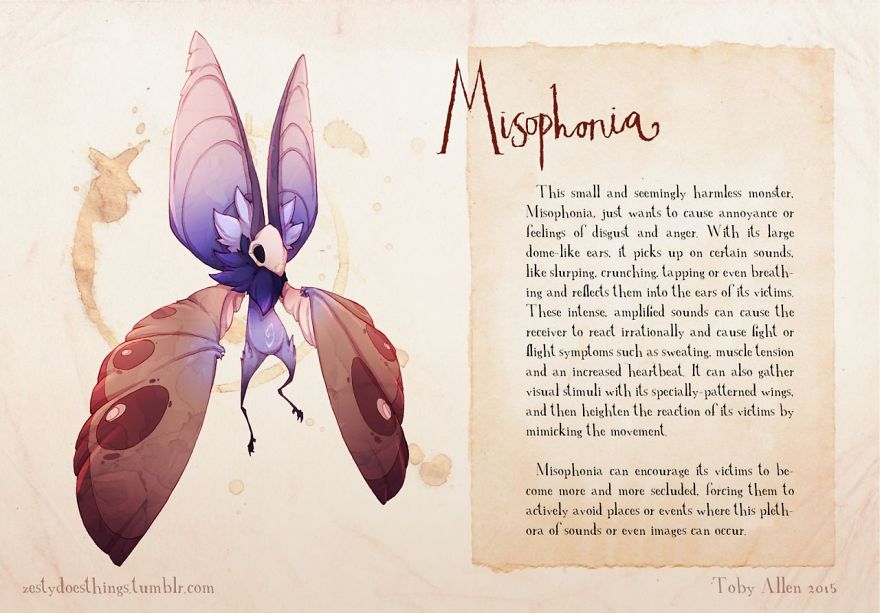Happiness Is Not A Destination But A Journey: An Interview with Dr. Ilene Strauss Cohen

Happiness: it’s something we all search for. How we go about doing so, however, makes all the difference, and it’s something Dr. Ilene Strauss Cohen, a psychotherapist and adjunct professor at Barry University, is particularly interested in. Her article “The Pursuit of Happiness Actually a Source of Unhappiness?” discusses the effects our pursuit of happiness has on us. She believes that happiness is not simply a destination, but a journey, and that we can find it within ourselves more often than we might think. Passionate about helping people live satisfying lives, she works as a psychotherapist and believes that a strong sense of self leads to a happier life and ultimately happier us. Below, Dr. Cohen has shared some insight about her experience as a psychotherapist and how we can better pursue happiness and a stronger sense of self.
Dr. Cohen, thank you for taking time out of your busy schedule to answer several questions for us! You are a passionate psychologist with your work featured in Psych Central, Tiny Buddha, and Psychology Today. Can you speak a bit about what your career as a psychotherapist entails?
 My career as a psychotherapist entails a lot, because I do a lot of different things, all related to psychology but expressed in different ways. I write, teach, and see clients. I am the type of person that enjoys challenges and working towards something. I find learning to be a passion of mine and I can do that through always writing about new subjects, teaching, and from my clients. I write a lot about different topics like managing anxiety, achieving happiness, relationships, self-love, dealing with difficult people etc. I write about whatever inspires me that week, that I write the article, and find that inspiration is everywhere if you look for it. It may be from a book I read, from a client’s story, or something I am personally going through.
My career as a psychotherapist entails a lot, because I do a lot of different things, all related to psychology but expressed in different ways. I write, teach, and see clients. I am the type of person that enjoys challenges and working towards something. I find learning to be a passion of mine and I can do that through always writing about new subjects, teaching, and from my clients. I write a lot about different topics like managing anxiety, achieving happiness, relationships, self-love, dealing with difficult people etc. I write about whatever inspires me that week, that I write the article, and find that inspiration is everywhere if you look for it. It may be from a book I read, from a client’s story, or something I am personally going through.
I hope that readers can learn a lot about themselves through what I write about, and then my biggest hope is that they apply what they learn in their own lives. It is one thing to understand how you can make your life better and it is another to actually apply those changes. From psychotherapy in general readers can learn about anything they want to learn about. There is a lot of useful information out there that will fit with what you are particularly going through. Personally, reading and educating myself, has been instrumental in living a fulfilling life. It helps you to gain new perspectives and insights that you might not have thought of on your own.
How did you decide to pursue the study of psychotherapy? What motivates you?
 I always enjoyed the subject since I took an AP psychology course in high school. I loved learning about the mind, brain, and human behavior. What motivates me are ideas, research, and helping people to live their lives in more satisfying ways. Personally, I grew up as the designated caretaker in my family. I was the one that always wanted to help and be there for the people around me. So as I got older it was a natural choice for me. I still have an urge to be a caretaker and I deeply care for others, however how I go about helping people is different now that I have more knowledge about what can truly be useful to the people you love. So yes, a career in psychotherapy has been worth it for me. I couldn’t imagine my life without it. I enjoy reading, learning, and understanding people. I am a better person because all I have learned and applied in my own life. The rewards are that I get to live doing meaningful work. It benefits me, because I feel good about what I do, and it benefits my readers, clients and students. Oh and my family too, since they have a happier and more pleasant person to be around.
I always enjoyed the subject since I took an AP psychology course in high school. I loved learning about the mind, brain, and human behavior. What motivates me are ideas, research, and helping people to live their lives in more satisfying ways. Personally, I grew up as the designated caretaker in my family. I was the one that always wanted to help and be there for the people around me. So as I got older it was a natural choice for me. I still have an urge to be a caretaker and I deeply care for others, however how I go about helping people is different now that I have more knowledge about what can truly be useful to the people you love. So yes, a career in psychotherapy has been worth it for me. I couldn’t imagine my life without it. I enjoy reading, learning, and understanding people. I am a better person because all I have learned and applied in my own life. The rewards are that I get to live doing meaningful work. It benefits me, because I feel good about what I do, and it benefits my readers, clients and students. Oh and my family too, since they have a happier and more pleasant person to be around.
Have you faced any challenges during your career?
Yes, I have. It isn’t an easy career to make a decent living from. At least in the area I live in. There are not a lot of job opportunities. The challenge is you have to build something for yourself. And after years of school, it can seem difficult to go on the path of starting a business. Now it has worked out for me. However, it took a while to figure out what I wanted to do with my degree after all of that schooling. I found that I didn’t just have to do one thing, and I could use my degree for good in many areas of my life. In my case, I knew what I wanted so I kept going for it even though it was difficult at times. I always remember that there isn’t a reward without hard work. Anything worth it in life isn’t easy to obtain. I also realized that my idea of what I could do with my degree changed. I looked into different ways I could use my degree that also appealed to me. I saw clients online, over the phone, and would rent an office hourly from a colleague’s office. I started to write, and then looked into local Universities to pick up some classes. I also wasn’t afraid to reach out to my network and see who could help me with finding me a job; that is actually how I got my adjunct position at Barry University.
I had colleagues that had a different experience than me. They did their internships and then were able to move anyplace in the country to find good jobs. It was different for me because I couldn’t move to another state. So that may only be the case in Miami that it is difficult to find a good job. I don’t want to worry readers that they picked a hard career. I think with anything there is always competition and no career is easy. However, it makes the process go smoothly if you enjoy what you do, have a long term goal in mind, and are open to different types of work.
In your article, you write that many of us are expecting our happiness to come from some outside source: “We’re practically waiting for magic fairy to be sprinkled over our heads.” Why do you think we often feel this way instead of empowering ourselves to find or define our own happiness? I know I’m personally guilty of this sometimes.
 Many of us are socialized to believe that happiness comes from an outside source. I don’t think we receive the message directly as much as we receive it indirectly. We get messages all of the time that we need to be rich, beautiful, materialistic, and have perfect circumstances to be happy. Even with negative situations we blame others, saying, “He/she was rude and ruined my day.”
Many of us are socialized to believe that happiness comes from an outside source. I don’t think we receive the message directly as much as we receive it indirectly. We get messages all of the time that we need to be rich, beautiful, materialistic, and have perfect circumstances to be happy. Even with negative situations we blame others, saying, “He/she was rude and ruined my day.”
Thanks for your honesty; I think we are all guilty of this. It takes time and effort to empower yourself, and take your happiness in your own hands. It is easy to get caught up in thinking that our outside world, and people in it need to be a certain way for us to be happy. Our families of origin are also a source that leads us to believe this. Growing up I was told you have to have a good secure career, a husband and kids to be happy. It was deeply ingrained in my culture that women especially need to be mothers to be happy. So we get those messages all of the time. No one really says, “Just live your life and find happiness from within.”
You speak about self-generated happiness and how we must change our mind set in order to shift our baseline for happiness. What advice can you give our readers for mentality change so as to pursue this type of happiness instead of a happiness reliant on other people, objects, or events?
There isn’t one easy answer to this. I think we have to take it each situation as it comes. However, one important aspect of any changes is self-awareness. If you can become aware of your triggers and really assess each situation as it comes you can better choose how you would like to respond. We can’t totally get rid of our natural reactions, however between stimulus and response we have a choice in how we want to handle every given situation. So, it is a matter of taking situations as they come and then choosing how you want to deal with them. Some things are unavoidably upsetting situations, for example someone dying that you love is an objectively horrible thing to happen. So one’s natural response would be to be sad, and that is okay. I wouldn’t want someone to repress his or her natural feelings. However, over time you have a choice on how you want to handle this bad situation and how you would like to live from there on out.
Can you elaborate a bit on hedonic adaptation and how we can incorporate an understanding of it to our personal pursuit of happiness?
 Hedonic adaptation is the observed tendency of humans to quickly return to a relatively stable level of happiness despite major positive or negative events or life changes. So when good things happen, we turn them very quickly into our baseline expectations, which leaves our void unfilled.
Hedonic adaptation is the observed tendency of humans to quickly return to a relatively stable level of happiness despite major positive or negative events or life changes. So when good things happen, we turn them very quickly into our baseline expectations, which leaves our void unfilled.
We are constantly told that this or that will make us happy, but when you find yourself constantly disappointed – as so many of us have – that is when people start to make changes. So much of what we do is designed to avoid pain or seek pleasure; but if we can drop all of that, we can learn how to be happy before anything happens. This type of happiness is self-generated, and it takes place by changing our perceptions. It is all in how we see things, and the meaning we bring to each situation. Most the time when I see clients they come in believing that their entire lives have to change for them to be happy. But soon we find out it is really their unhelpful perceptions, beliefs, and behaviors that get in the way of their happiness.
For those who want to learn more, do you have any additional resources or further readings?
For those that want to learn more I have a personal blog that I post an article weekly, http://doctorilene.com and a Facebook page that I post useful articles, quotes, and videos daily at https://www.facebook.com/doctorilene/. On my website I have a library of books I recommend, they are some of my favorite books, http://doctorilene.com/resources/. I also have a book coming out at the end of the summer, that offers a step-by-step process for building a stronger sense of self that ultimately leads to more internal happiness.
If you could give one piece of advice to Millennials and future generations, what would it be?
All of us have internal struggles we are dealing with, and every generation has their own unique struggles. Don’t let anyone put you in a box and tell you how you need to live your life. Always seek guidance from your voice within, your inner self. It is most important you live for self not in pursuit of what others expect from you.
Thank you Dr. Cohen for your time and insight!
Your welcome! And great questions! Thank you.
Dr. Cohen can be reached at info@doctorilene.com. She is easy to reach and open to questions!
Make sure to check out her full article and blog site for more information!




Responses